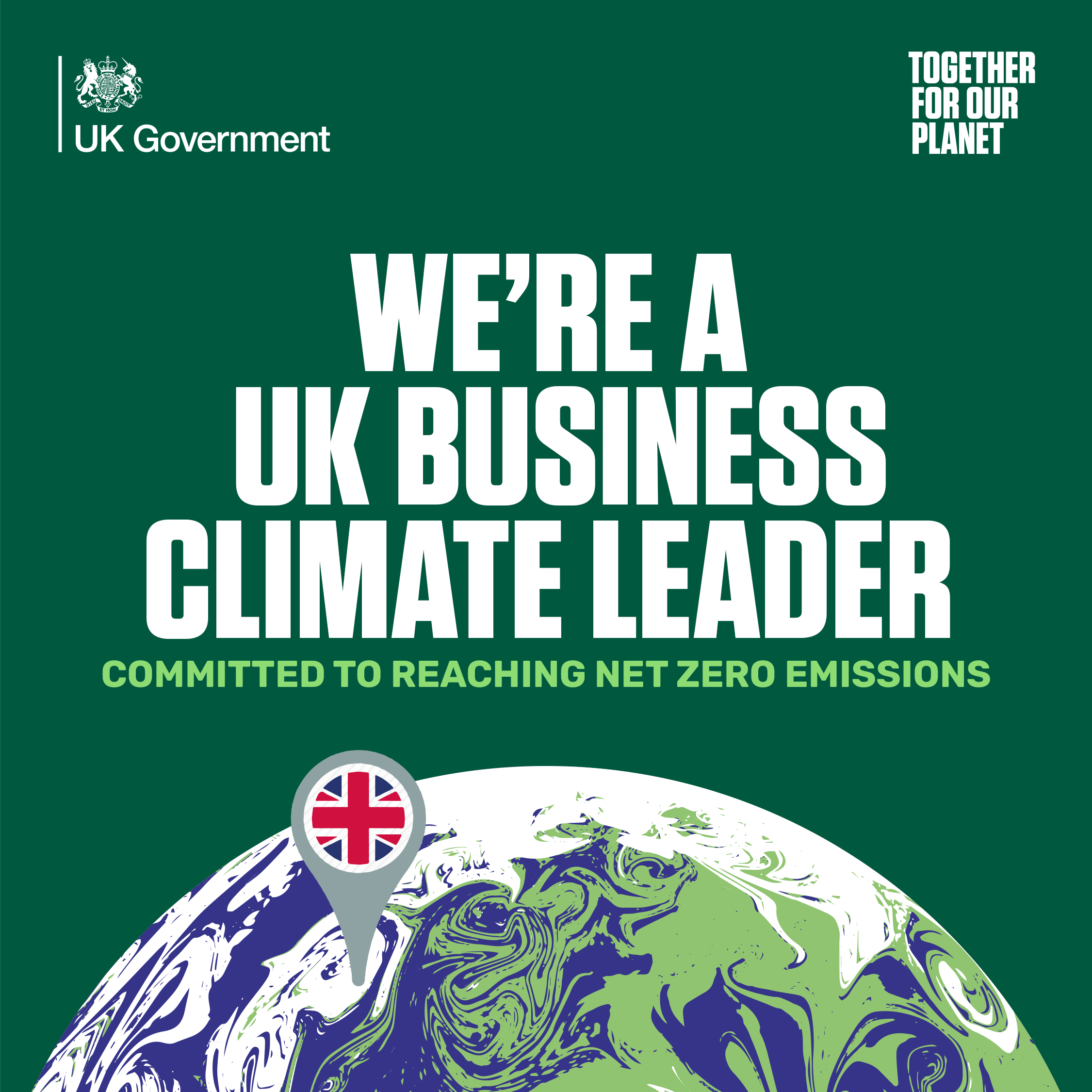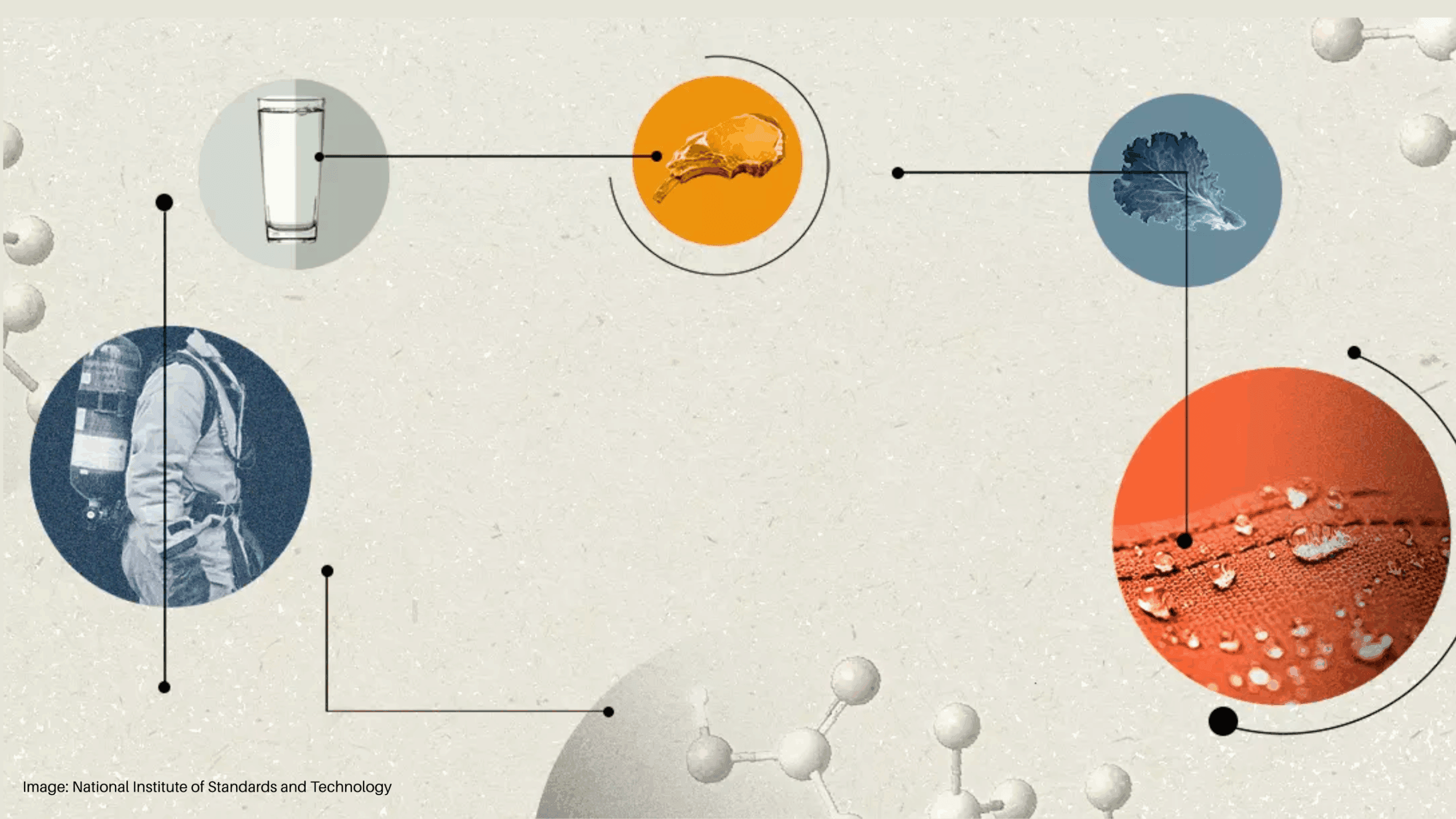Earlier this month, we hosted ‘Planet Positive’ live from Glasgow during COP26.
Following the virtual event, we had a number of questions from those in attendance, find the answers below!

Sign up to the SME Climate Hub
How do small SME companies go about carbon measurement? They often can’t afford expensive 3rd parties?
SMEs can join the SME Climate Hub which is a global network of businesses seeking to improve themselves, their community, and the planet. The SME Climate Hub gives access to tools to help companies in managing their sustainable development. SME’s can also start their carbon measurement journey using free software such as that provided by Carbon Footprint.
How do you account for the consumer’s carbon? Some shower/bath/wash multiple times a day, wash their hair daily etc. while others far less. I’d be interested to know the data for companies, that ought to be better known than trying to guess what your customers use. I don’t object to you guestimating the customer carbon but as Jayn said, we need to be responsible for ourselves as individuals!
It can be difficult to calculate consumers carbon footprint. This can be estimated by calculating the number of products sold, where those units were sold, the electricity consumption in these areas and how many ‘uses’ the product itself has. Even with this information it is difficult to get accurate figures.
You can also look at research already done on Life-Cycle Assessment by typing on a browser “bar soap LCA”.
Learn more about calculating consumers carbon footprint.
From a comment made earlier it seemed like there was a judgement on purpose-driven business making a profit. The profit-driven business has been making huge profits for years that have been stripping resources from the earth. Wouldn’t it be better for planet positive purpose-driven businesses to be making profits, and then reinvesting in planet positive change in the industry? Do these purpose-driven businesses have the ethical standards to ensure that profits are used wisely and for the greater good, and not to line the pockets of a few individuals? I am hopeful.
There are two types of businesses driven to make a positive impact. There is the Benefit corporation and B Corp. Benefit corporations are legally empowered to pursue positive stakeholder impact alongside profit. Both create the opportunity to unlock our full human potential and creativity to use the power of business for the higher purpose of solving society’s most challenging problems. B Corp offers a “B impact score” to certify the positive impact of a company. The B Impact Assessment asks questions about how the day-to-day operations of a company create a positive impact for the company’s workers, community, and environment. Click here to learn more.
We are finding our clients exposing us as the manufacturer of private label products, as they are showing transparency. We are a new company so it feels strange as this has only started happening recently but do you think this is the way the industry is going, with full transparency from production to sales?
Companies such as Provenance help in developing full transparency in the supply chain. In a recent study made with Cult Beauty, Provenance found out that 23,000 beauty shoppers found almost half (48%) are looking for more information and clarity about brands’ values and commitments to the environment. It is a clear call to action from consumers to companies in developing full transparency on their actions.

Click here to find out more about the Sustainable Beauty Coalition
How can I connect further with the coalition as we could do with some additional support now we are working with start-up brands as we are also a start-up brand ourselves? I am a manufacturer, but I have also been in the construction industry for 20 years and work within renewable energies and I’m looking at a very big task of trying to merge the 2 for more sustainable production so any additional support would be amazing
You can sign up for regular updates, news and ways to get involved via https://britishbeautycouncil.com/sustainable-beauty-coalition/. On this platform we share key information for companies interested in developing their environmental credentials, share best practice from like-minded businesses as well as many other initiatives get involved with.
What can be done to encourage local authorities to do more to support recycling initiatives for SMEs? Many won’t take waste from salons – or do, and don’t recycle appropriately, so the industry has launched a few initiatives, but these aren’t widely available yet. Hard for day-to-day businesses to make the difference they want to.
Signing up to the UK Business Climate Hub is a good way to show SME’s commitment to race to net zero to the local authority. You can also contact your local MP to ask for actions to be taken in terms of recycling initiatives. Find your local MP here: https://members.parliament.uk/members/commons.
Terracycle are also doing some fantastic work in empowering local communities to find solutions for themselves.
How do you change the consumer’s expectations for the perfect non-tamper packaging? The perfect gift pack… this obsession with overwrapping comes from where? What will convince the average consumer to change expectations, when appearance has become a huge buying choice?
There is a lot of work going on in this space with Boots reducing 80% of its plastic packaging for gifts this Christmas yet doing so in a way to still make the products appealing. With public consciousness on the issue of plastics, environmentalism etc. at an all-time high, never has there been a better opportunity to bring consumers along with you in the move away from excess packaging. Sharing with consumers that you are changing your materials to more sustainable alternatives and the reasons why will demonstrate your business ethos and help to build loyalty.
Do you think ‘carbon neutral’ or even ‘carbon positive’ will increasingly become a helpful certification?
It is true to say that there is a lot of confusion from consumers and industry on terminology. As companies and governments develop strategies for the future without carbon, it is more likely that ‘carbon neutral’ or ‘carbon positive’ will become more widely understood and therefore helpful certifications. To learn more about these certifications It is helpful to read https://carbonneutralbritain.org/.
What are the best ways for someone who sells beauty products (in pharmacy/store etc) to steer customers towards sustainable products?
As we have highlighted previously, with public consciousness on the issue of plastics, environmentalism etc. at an all time high, never has there been a better opportunity to bring consumers along with you in the move towards sustainability. Sharing with consumers the reasons why sustainability is so important to you as a brand will demonstrate your business ethos and help to build loyalty. The Planet Positive Beauty Guide is great for educating consumers to help them make these key swaps and explain the reasons why they’re so important. Maintain clear communication on your sustainable commitment and stand out!
Watch the Planet Positive webinar on-demand below!




